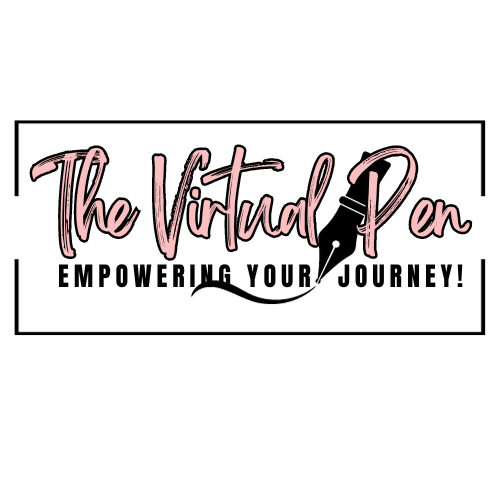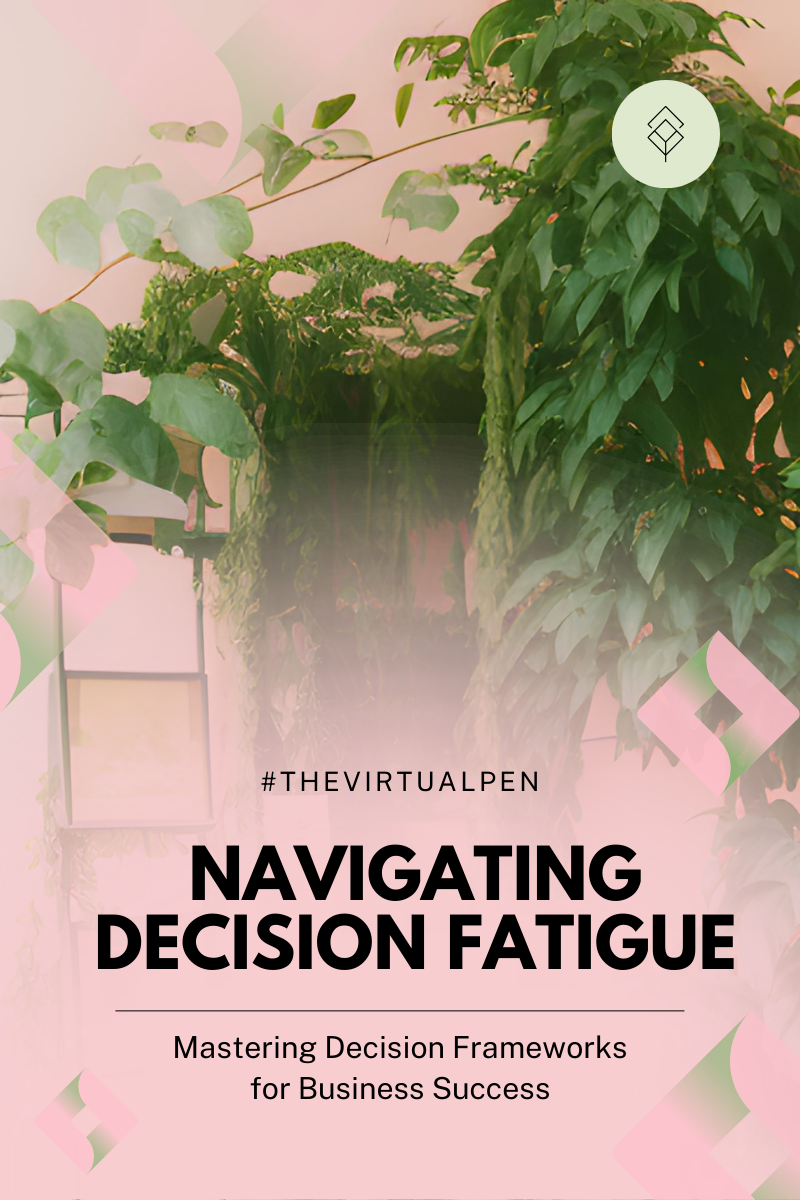In our last blog post, "Embracing Clarity: Managing Decision Fatigue in Your Entrepreneurial Journey" we explored the mental toll that constant decision-making can take on entrepreneurs like you and me (I'm not exempt). Decision fatigue is a real challenge, and I understand its impact on your journey. Today, we're diving deeper into a key solution we hinted at previously: decision frameworks.
Decision Fatigue Recap:
Running a business is an adventure full of highs and lows, and it comes with an abundance of choices, both significant and mundane. These decisions can pile up, leading to decision fatigue—the mental exhaustion that sets in when you've had to make one choice too many. My friend often explains it this way "Girl, my little mind dun laid down on me." I laugh so hard but I completely understand the sentiment. Because like fatigue in general we normally decide to not decide. One thing about me, I'm going to take a nap or rest.
The Power of Decision Frameworks:
Decision fatigue is where decision frameworks come to your rescue. Picture them as your trusty guides, simplifying the complex world of choices and allowing you to navigate with clarity and confidence.
What Are Decision Frameworks?
Decision frameworks are systematic and structured sets of guidelines that help you make consistent and logical choices, particularly in scenarios that frequently recur within your business. They serve as your mental compass, ensuring that each decision aligns harmoniously with your business objectives and values.
Why Decision Frameworks Matter:
Consistency: Decision frameworks promote consistency in your decision-making. When faced with similar situations repeatedly, a framework ensures you approach them in a uniform manner, helping you build a coherent business strategy.
Efficiency: They are time-savers. Rather than pondering each decision from scratch, you can apply your predefined criteria, streamlining the decision-making process.
Reduced Stress: Decision fatigue often arises from the mental strain of making too many choices. Decision frameworks alleviate this burden by simplifying decisions, thereby reducing stress.
Creating Your Decision Frameworks:
Identify Common Scenarios: Start by recognizing the recurring situations or decisions in your business. These could encompass content creation processes, project prioritization, or customer interactions.
Define Your Criteria: For each scenario, outline the criteria that are most important to you and your business. Consider factors like cost, time, quality, and alignment with your mission. You do know your mission right? Of course you do! 😜
Establish Priorities: Determine which criteria hold the highest priority. Not all factors carry equal weight, so clarifying their order of importance ensures that you're making decisions aligned with your overarching goals.
Document Your Framework: Write down your decision framework in a clear and accessible format. This could be a checklist, a flowchart, or a simple document. Having it documented ensures you can easily reference and share it with your team if needed.
Putting Decision Frameworks to Work:
Imagine you're considering whether to take on a new project. Your decision framework might include criteria such as profitability, time commitment, and alignment with your values. By applying these criteria, you can quickly assess whether the project aligns with your goals and whether it's a sound decision for your business.
Decision fatigue is a formidable opponent on your entrepreneurial journey, but it's one you can conquer. By developing and implementing decision frameworks, you're not just streamlining your choices; you're also reclaiming precious mental energy that can be better directed toward strategic thinking and innovation.
So, let decision frameworks be your trusted companions in this exciting entrepreneurial adventure, ensuring that each choice you make brings you closer to your vision of success. Let's continue to navigate this journey together with clarity, confidence, and a passion for what's possible.



Comments ()